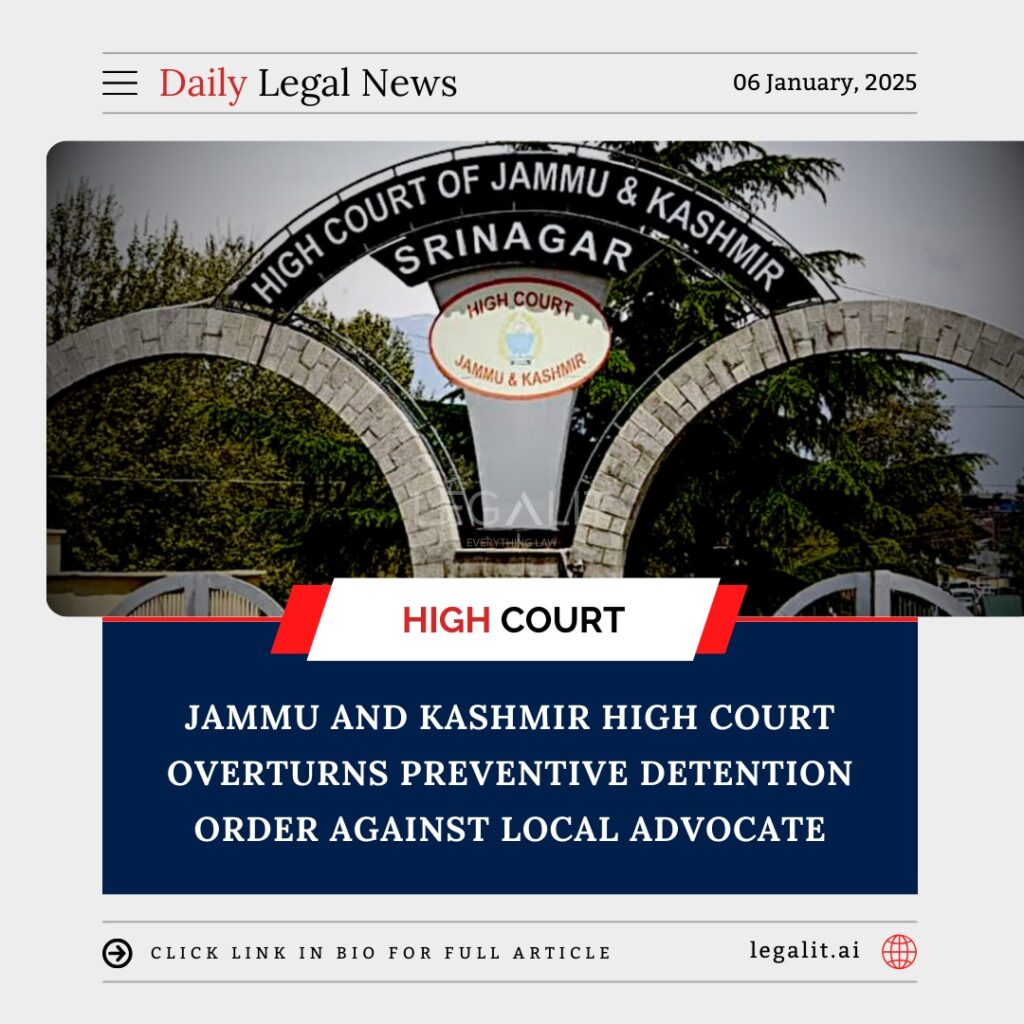
The Jammu and Kashmir High Court has nullified a preventive detention order issued under the Public Safety Act (PSA) against a practicing advocate. The court observed that the detention lacked substantial grounds, violated constitutional safeguards, and was procedurally flawed, leading to the advocate’s immediate release.
Background
The advocate was detained earlier this year under the PSA, which allows authorities to detain individuals without trial for up to two years if they are deemed a threat to public order or security. Officials alleged that the advocate’s actions posed a risk to maintaining peace and harmony in the region.
The detainee’s family and legal representatives challenged the order, arguing that it was arbitrary and based on vague allegations unsupported by evidence. They contended that the advocate’s constitutional rights had been severely compromised through the misuse of the PSA.
Court’s Analysis
- Insufficient Grounds for Detention:
The court held that the detention order was not based on clear and compelling evidence. It noted that general claims of disruption to public order were insufficient to justify such severe measures. - Non-Compliance with Procedural Safeguards:
The judgment highlighted a critical violation: the detained advocate was not informed of their right to challenge the detention order. The PSA mandates this procedural safeguard to ensure transparency and fairness in its implementation. - Constitutional Safeguards Undermined:
The bench emphasized that preventive detention must be used sparingly and only in cases where standard legal procedures are inadequate. The court reaffirmed that such actions cannot supersede fundamental rights enshrined in the Constitution. - Exploration of Alternative Measures:
The court questioned the necessity of invoking the PSA and suggested that less intrusive measures could have been employed to address the perceived threats attributed to the advocate.
Significant Observations from the Court
- “Preventive detention is not a substitute for ordinary legal proceedings and cannot be invoked as a matter of convenience.”
- “A preventive detention order must be backed by substantial and specific evidence, not vague or general apprehensions.”
Implications of the Judgment
- Judicial Oversight on Preventive Detention:
The ruling reinforces the judiciary’s role in scrutinizing preventive detention orders to prevent their misuse and protect individual liberties. - Strengthening Accountability:
It underscores the need for authorities to adhere strictly to procedural safeguards while invoking detention laws like the PSA. - Encouragement for Policy Reforms:
The judgment may prompt policymakers to revisit the application of preventive detention laws and ensure their use aligns with constitutional principles.
Conclusion
The Jammu and Kashmir High Court’s decision to quash the advocate’s detention order under the PSA sets a significant precedent in upholding constitutional rights. By emphasizing the necessity of procedural compliance and evidence-based decisions, the judgment reaffirms the judiciary’s role as a protector of individual freedoms and due process.